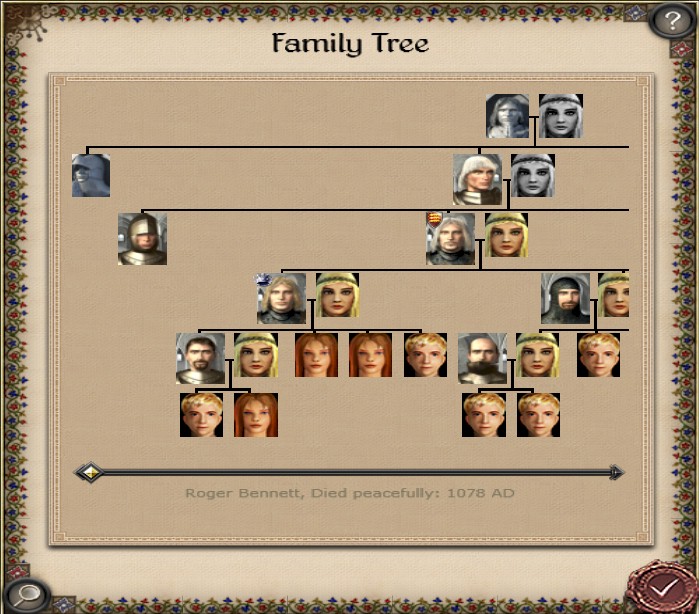I'm not very sure about that. Making something like this
can't really take that much time relative to other things being done, and it almost looks like an afterthought. I don't think anyone's asking for character-specific traits or that jazz, but tracking family relations, who those family members are married to, ages, and children might not be that tall of an order.
Even without character-specific traits, what you would need:
1)To keep track of ALL children of all rulers in the game, as opposed to one child at a time (the heir). That right there multiply by a lot the amount of information the game need to keep track of. All the more so if you try to keep track of multiple generations at once (so you know who the king's brothers, king's grand-children, king's great-grand-children are.
2)To *generate* this data. In order for this family tree to be useful you need kids being borns, and marriages happening. That means the game need events (either as actual in-game events or as a hidden routine within the game) that keep marrying off those characters, and generating kids for them, and killing them off. That's a lot of background operations for the computer to constantly be running on a cast of thousands.
If you try to keep track of entire family trees as far back as European dynasties tried to track their family trees, it's far, far, far worse.
...and we haven't even *looked* at adding the higher nobility yet, just the ruling families of in-game states. To say nothing of the rest of the world where they might not even follow the same system of dynastic laws (or were you planning to introduce those too?)...
The interface is the EASY part of doing this. The work for the actual game engine to keep track of this information - the relation between thousands upon thousands of characters - is where the problem is.
When the vast majority of those characters exist solely for the purpose of providing a realistic family tree (as opposed to being game-relevant characters), then you have a serious game design problem.
But to make them game-relevant characters you need to throw even more design at them (ie, giving them stats, abilities, roles to fill). Which in turn means focusing the game even more on those family trees and characters, at the expense of other features that will need abstracted.
And then what you have isn't Europa Universalis anymore; it's Crusader Kings : 1444-1800. Which might be what some fans want, but it very clearly isn't what Paradox want.
And rightly so. Crusader Kings and Europa Universalis should be completely different games, not the same game in two separate time periods.






